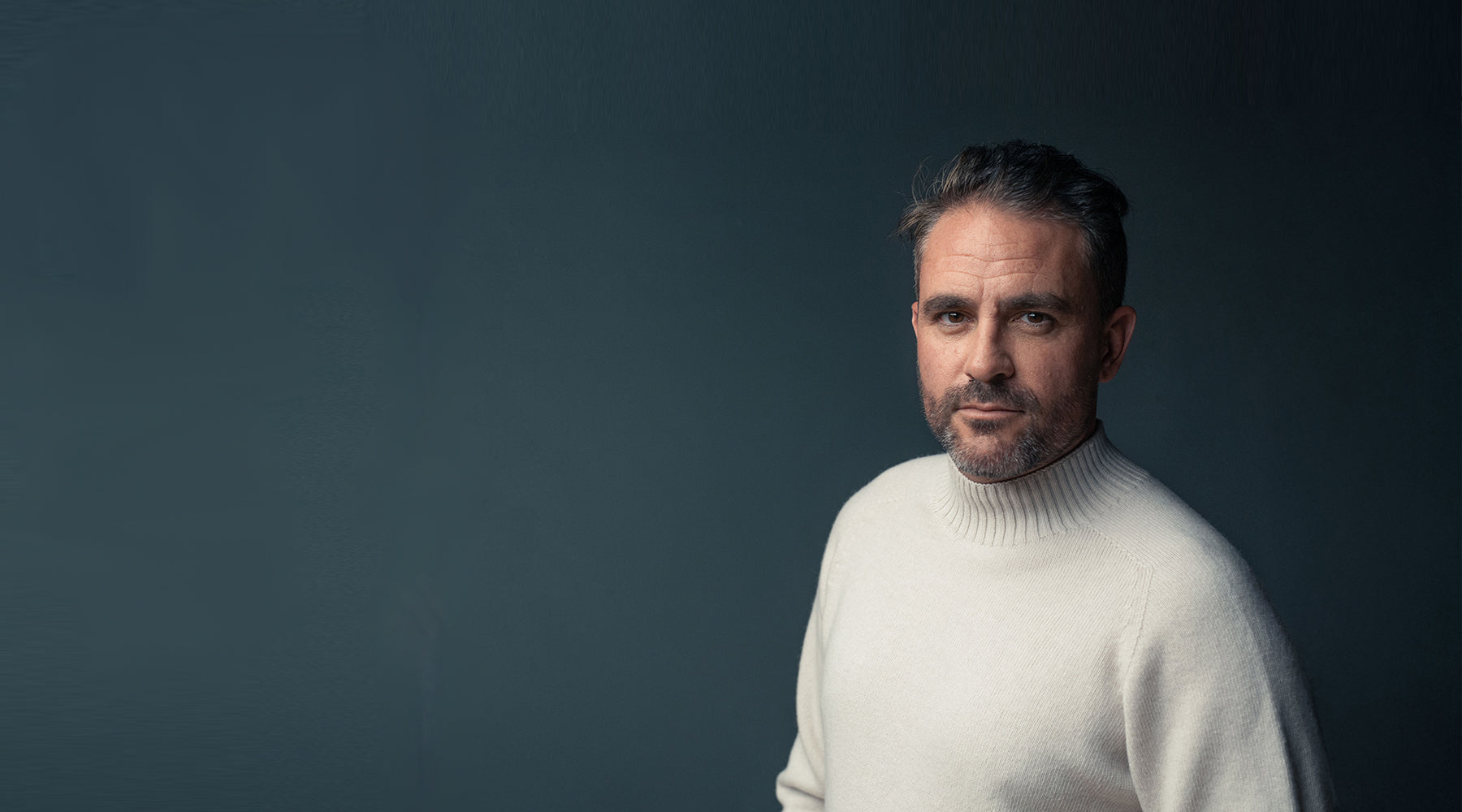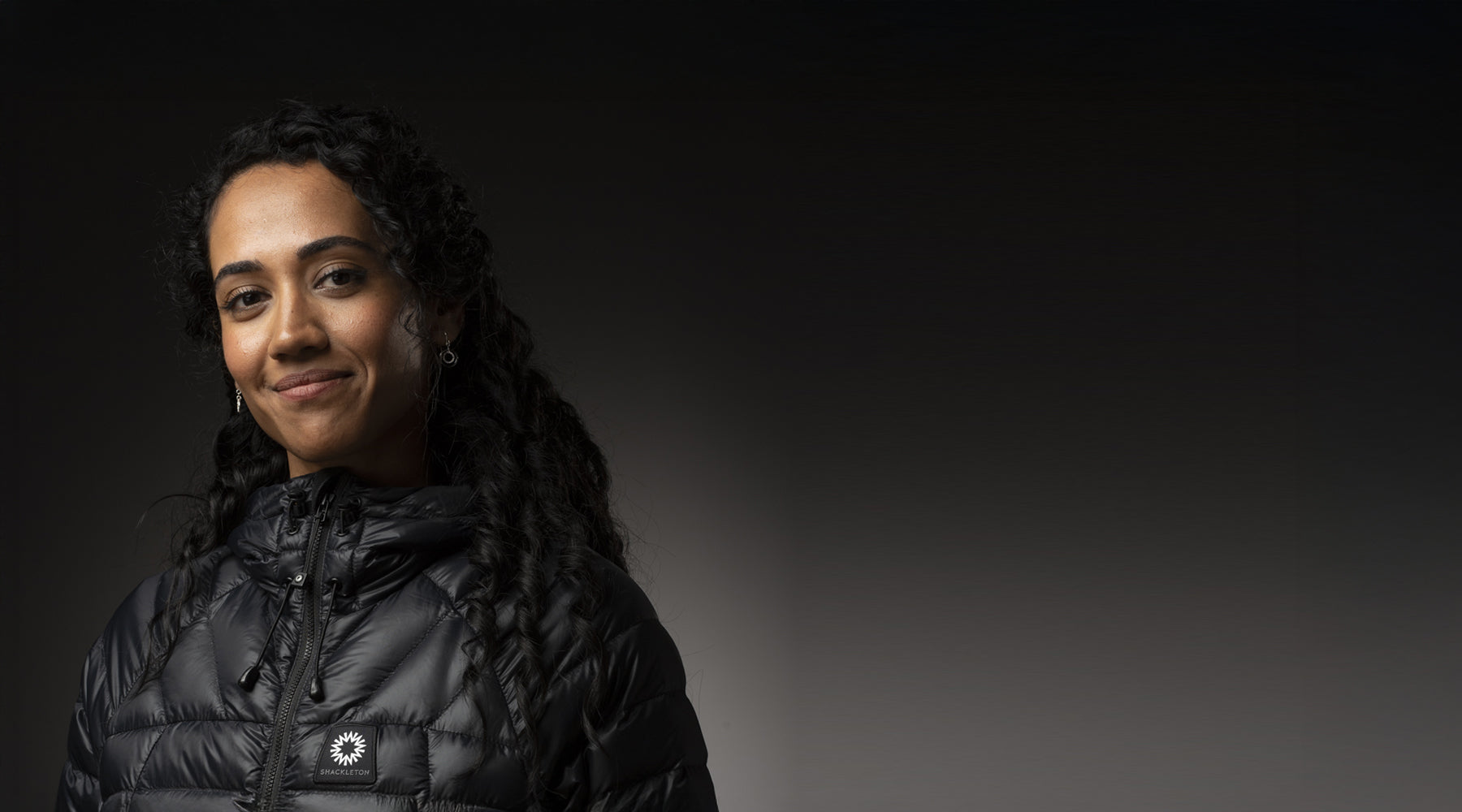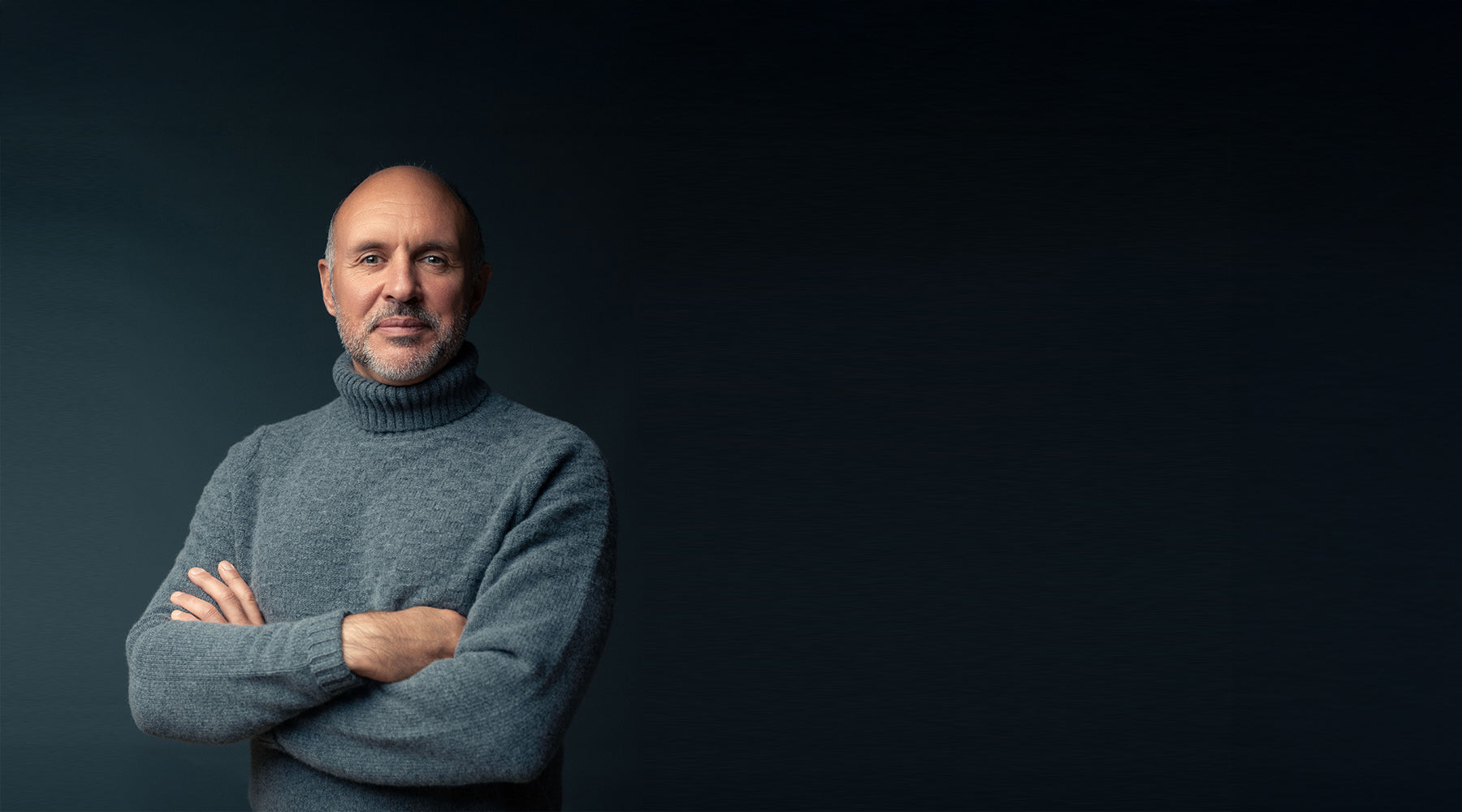To mark the launch of the Shackleton Pioneer programme, Shackleton’s Amelia Steele interviewed the celebrated British explorer, author, photographer and Shackleton Pioneer, Levison Wood. Levison is known for his remarkable walking expeditions through some of the world’s most challenging terrains, including the Nile, the Himalayas, and Central America. Here he shares his journey from his military background to a life spent exploring over 120 countries, documenting cultures and stories often overlooked by the mainstream. Levison’s perspectives on courage, resilience, and the beauty of nature offer a unique insight into the mindset of a modern-day explorer.
Amelia Steele: Hi Levison, you’re known for your extraordinary walking expeditions- could you tell us a bit more about those?
Levison Wood: I walked the length of the River Nile, the length of the Himalayas, all of Central America. I've been very lucky to travel in over 120 countries. I used to be in the British Army; I was an officer in the Parachute Regiment. But these days, I write books and make TV shows about my travels, and…yeah, that's me.
AS: Incredible achievements. Out of everything you've done, what would you say is your proudest moment or accolade?
LW: It doesn’t have to be, but I think, for me, serving in the British Army was a huge privilege. Being an officer in charge of paratroopers was a dream come true for me as a young man. I think earning that maroon beret set the tone for the rest of my life because it proved that it doesn't matter what your background is - you can push your boundaries and achieve incredible things. That really opened up so many doors, and it gave me the courage to travel the world and undertake adventures that everyone told me weren't possible.
AS: So, I assume you've found yourself in some pretty hair-raising situations, whether in the military or on your expeditions. Is there a particular instance where you really had to gather all of your skills and mental resolve to deal with something challenging?
LW: Well, by virtue of the fact that I travel a lot in conflict zones, as a reporter and photographer, I’ve spent time in places like Afghanistan, Syria, and Iraq. You find yourself in situations where you're really tested, often quite dangerously. I’ve been in gun battles in South Sudan, held up at checkpoints in ISIS-controlled areas in Iraq and Syria. Those experiences tested me as an explorer. And in those moments, teamwork is vital - surrounding yourself with trustworthy people is key, whether you're in a war zone, organising an expedition, or in the military.
AS: Absolutely, it sounds like having a good team around you is crucial. Do you think there are any particular qualities that make someone an effective leader in those environments?
LW: To be an effective leader in any environment, you need to lead by example. That means being good at whatever you’re doing. In exploration, it’s about setting the right tone and doing whatever you expect your team to do. You've got to be as good as them, if not better. It’s not always the obvious dangers, like getting shot at or facing wild animals, that are the biggest threats. Sometimes, it’s things you don’t anticipate - like a car accident. In 2015, I had a car accident in the Himalayas. The brakes failed, and we flew off a cliff. I was fortunate to survive with just a broken arm and ribs. Local people in Nepal rescued me, and I spent three days in a village waiting for a helicopter.
AS: That sounds intense. When you’re in those challenging moments, are there any mental coping strategies you employ?
LW: In any scenario, whether dangerous or just pushing your limits, you need almost blind optimism. I never envision failure or disaster. And when disaster does strike, you have to look for the opportunities and positives in it. I broke my leg while paramotoring once, I’ve been jailed in Egypt for a visa issue - all these experiences test you, but there’s always something you can learn. It’s about finding that glimmer of light, growing, and evolving from each challenge.
AS: I love that mindset. What keeps you coming back for more? What is it about pushing your boundaries that motivates you?
LW: I push my boundaries because it leads to personal growth. I feel incredibly lucky to call myself an explorer and meet fascinating people in every corner of the world. The people I meet in remote places - farmers, fishermen - teach me so much. Often, those with the least to give are the ones who give the most, and that humility is infectious.
AS: Is there a culture that has left a lasting impact on you or a particular lesson you've learned?
LW: Travelling through the Himalayas was formative. I first went there at 18, then walked the length of the range in 2015. The people in Nepal are resilient and stoic. Meeting the Dalai Lama, who comes from a background of hardship, taught me about humility. More recently, I’ve spent time with indigenous tribes in the Amazon. Their way of life is under threat from illegal logging, mining, and fires. They want to preserve their culture and environment, and I believe we all have a duty to support those efforts and protect these last wild places.
AS: Speaking of younger years, what would you tell your 18-year-old self, now that you've had all these experiences?
LW: I’d tell my 18-year-old self to follow passions and dreams, regardless of background. I grew up in Stoke-on-Trent; my parents were teachers, and education was highly valued. I’d tell any young person to read lots of books. That’s where you get valuable information. My inspiration to travel came from reading about mythology, history, and other cultures. Going off backpacking at 18 was the best thing I did, even if it’s just to somewhere like Thailand. It teaches independence and makes you realise you’re the master of your own destiny.
AS: You’re involved in charity work as well. Could you give us an overview of the causes you support?
LW: Yes, along with my expeditions, I work with several charities. I’m the Chancellor of Staffordshire University, which lets me meet young people and hopefully inspire them. I’m also a UK ambassador for UNICEF, supporting global education. Additionally, I work with veterans’ charities like the Parachute Regiment charities and the Gurkha Welfare Trust. Conservation is important to me, so I support organisations like the Tusk Trust for African conservation. Protecting wilderness, wildlife, and promoting education are the causes closest to my heart.
AS: I can imagine that’s all very rewarding. What would you say is the most difficult part of being an explorer?
LW: Strangely, the hardest part isn’t the exploring itself. I love being in nature, and I think if more people spent time outdoors, they’d be happier. The challenging part is the preparation - months or even years of planning, securing funding, arranging visas, and so on. Keeping the momentum alive can be tough, especially after doing this for 15 years. But I wouldn’t change a thing.
AS: You’ve achieved so many firsts - walking the Nile, crossing the Himalayas. Can you tell us a bit about those journeys?
LW: Over the last 15 years, I’ve completed a number of world-first expeditions. I walked the Nile, a 4,250-mile journey that took nine months. Then I walked the length of the Himalayas from Afghanistan to Bhutan. I also walked from Mexico to Colombia, traversed 5,000 miles across the Arabian Peninsula, and crossed the Caucasus Mountains. Walking lets me see the human side of these regions. I’m able to show parts of the world that often have a negative reputation in a more positive light.
AS: That’s amazing. With all these diverse environments, are there specific skills that help you operate effectively in each place?
LW: Patience is key when travelling on foot, as it makes you vulnerable and open to interaction. Walking means there’s no escape; people come up to you, invite you into their homes. That vulnerability allows for connections you wouldn’t get otherwise. I don’t carry a gun because I’m there to meet people and experience their culture at a basic human level.
And that's why I've managed to interview, you know, mujahideen fighters in Afghanistan. That's why I've sat down face to face and had a coffee with an Iraqi sniper who was on the, you know, the bad guy side. But that's because you have to be really humble, meet people at their own level and not be judgmental. I think that's really the key to all of this is to just be really respectful of people's ways of lives and to offer a voice. And sometimes, actually, I found that when you’re there, you know, if I'm there with a camera, people are very happy to talk.
People are very happy to have their photograph taken as long as they know that you're there with no agenda, purely out of curiosity. And I think that's the key: being curious and staying curious.
AS: Absolutely. And so you mentioned the interviewing and the shooting photos. What's the significance for you, for the documentation of your travels. What's your intention for it?
LW: I mean, I'm lucky I get to go to all these different places, and I'm there filming, sometimes, making documentaries. I usually write about the places that I travel to. I've written 13 books about my travels. I think what photography does is telling the story in a different medium, in a different way, which can potentially reach a different audience. And I really enjoy photography. For me, it's more of a hobby. I don't go out there with any intention to necessarily sell my images. I have done a photography book calledEncounters, but I do enjoy occasionally exhibiting my photographs, and people like to see some beautiful images from different places, and I just get a personal reward out of telling the same story in many different ways.
AS: Awesome. Thank you. By the sounds of things, you've had to employ courage a few times throughout your life and career, and as you know at Shackleton, we exist to inspire people everywhere to live courageously, whatever their goals or achievements. What does courage mean to you?
LW: You know, I think courage really is quite simple. It's about living and breathing the values that you espouse. And so if you profess to adhere to a set of values and standards, you've got to actually live by them and live by those standards. The only person you need to impress is yourself. And that's courage. I think who inspires me? I've been inspired by all the classic greats like Shackleton, like Livingstone, you know, one of my favourites of those Victorian explorers was a guy called Sir Richard Burton, who was an incredible explorer in his own right and put himself in some very risky situations. He was an incredible intellect. He spoke 27 languages. He was a man that really walked the walk. But I think, you know, in terms of inspiration, my own grandfather, he was from very humble roots. He worked in a factory, was sent off to war in 1943, and fought in the jungles of Burma, and then went back to Stoke and carried on with his life. But it was those stories of, his own early adventures as an 18, 19-year-old, albeit against the backdrop of the tragedy of war, which probably inspired me to once again see more of the world myself. So he was definitely an inspiration.
AS: The jungle connection led you back there?
LW: Definitely. And it was listening to those stories of the jungle that I think sent me back there many times. And I've been able to follow in his footsteps in Burma or in Japan and throughout India over the years. And that's been a huge privilege. We've got the family photo album where he was in the middle of the jungle, aged 18. And to be able to go back and follow in his footsteps was an incredible experience. And actually, when I left the Army back in 2010, the first place I went to was Burma to go and see where he had fought for many years.
AS: And for you, what is your overall mission, what do you aim to achieve with your life and work?
LW: I think when I first started doing this and we set out to, embark on these journeys, it was purely out of a sense of adventure. I just loved being outside in nature. And then what I soon found, though, was the impact that has, whether it's through writing or bringing documentaries to an audience. It really has a global impact. And I've had people from all around the world saying how my books and films have impacted them or inspired them to do things. And so I then was kind of forced to take my job a bit more seriously, knowing that there would be an impact. And that has led on to work with lots of different charities. And so I had to choose what path to take.
I think bringing people together, shining a spotlight on countries that I think need a better image or need more attention, you know, we all know that bad news sells, but actually there’s a lot of good that happens in the world.I think spreading positivity is something that we can all do more of. And I think that that's something that explorers can especially do is shine a spotlight on incredible people around the world. And so that's what I've tried to do over the last decade is tell some really amazing human stories, all against a backdrop of nature because I think without nature, we're nothing.
I think we need to spend more time really thinking about our own connection with nature. And I think that's what I'm really getting into. More interesting now is how each and every one of us can connect with nature simply by appreciating, whether it's by appreciating forests or spending more time outside or doing things that we enjoy. I think that's really important. In an age of more and more technology and the sort of all of the things that are consuming our lives right now, I think we just need to remember where we come from, which is the Earth, and let's do our bit to protect it.
AS: And is this interest reflected in your new work?
LW: Yes, I'm currently finishing up a book, all about trees right now. The stuff that we're finding out now about just how important our trees are in terms of tree communication, tree intelligence. There's a lot of science now that's coming out showing just how clever trees really are. And, you know, without trees, humans could not exist. And I think that the connection, this very long standing connection between humans and forests is really important in our lives. We evolved out of forests. We are literally the children of the forest. And so we need to remember that going forward, because there is a huge risk right now that we are destroying wilderness landscapes. You know, you only have to look at the news to see what trouble the Amazon is in right now.
But this is not just about, you know, climate change and environmentalism. It's on a more fundamental level. We are happier when we are surrounded by nature. And I think there's some really interesting studies right now that show just how important it is that we remember our connection with trees. So the book's coming out very soon. And I think it will appeal to people all around the world.
AS: Awesome. Thank you. I’ll look forward to reading it.
To learn more about the Shackleton Pioneer Programme visit this
link. To watch Levison Wood's short film visit this
link.



